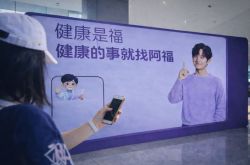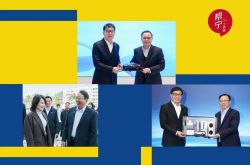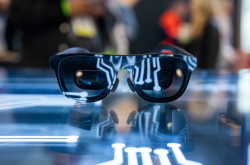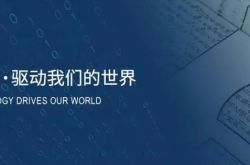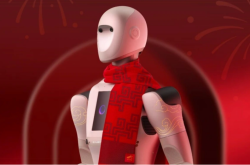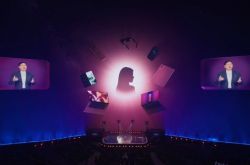Toyota Diversifies into Real Estate, Sony Delays Honda's Launch: Automakers Dominate CES
![]() 01/10 2025
01/10 2025
![]() 599
599
Why do automakers flock to technology exhibitions?
The annual technology extravaganza is currently underway in Las Vegas, USA. As the world's largest consumer electronics exhibition, CES has always been at the forefront of technological trends.
With the rise of intelligent connected vehicles, automakers have begun to converge on this grand gathering of tech companies, boldly positioning themselves as the center of attention.
Statistics reveal that among the 4,000 exhibiting companies, over 1,000 are related to automotive or mobility technology. Many prominent automakers attended in person, including Toyota, which returned to CES after a five-year hiatus, collaborating directly with leading tech giant NVIDIA.
As for Chinese automakers, their presence continues to grow. Not only are newcomers like Zeekr and Xpeng exhibiting, but even traditional automakers like Great Wall Motors are frequently making appearances at tech exhibitions.
Furthermore, cars are no longer the main exhibits; they are increasingly showcased as platforms for new technologies.
Showcasing Technology, Not Cars
BMW, a CES veteran with 11 consecutive years of participation, deviated from the norm this year. Instead of bringing specific car models, it highlighted its smart cockpit technology.
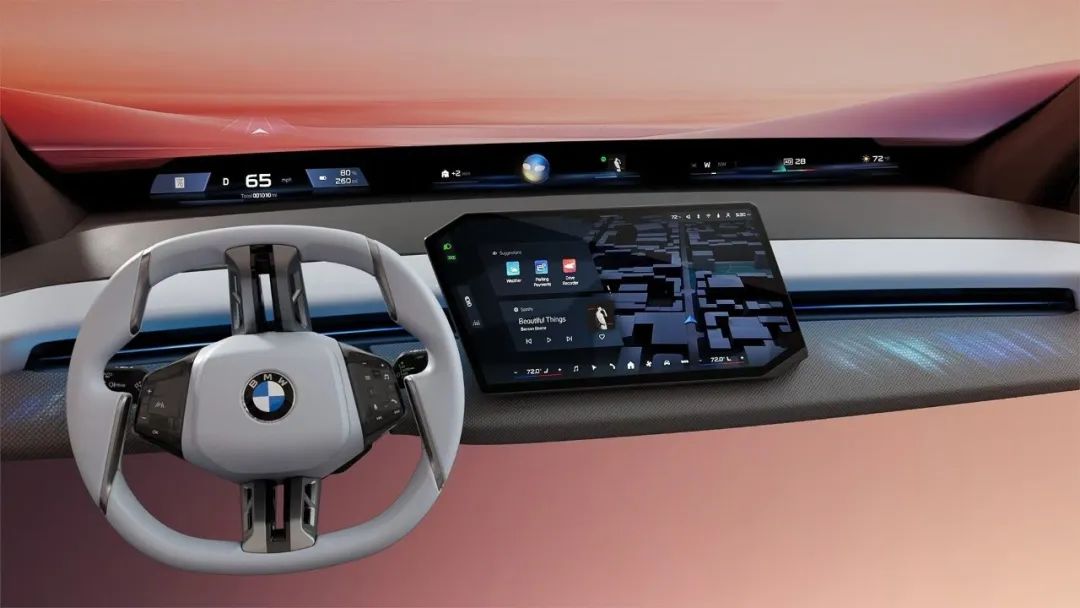
Renowned for its innovative in-car displays, BMW introduced a new augmented reality head-up display technology that integrates part of the front windshield into the in-car system display, transforming it into a large-screen interface.
In addition to virtual displays, BMW also presented an irregularly shaped central control screen, a hexagonal display even more abstract than the circular screen used in MINI.
These futuristic designs aim to showcase the panoramic iDrive system, a cross-era cockpit system. By incorporating AI large language models, BMW aims to enhance its technological leadership in smart cockpits, achieving new breakthroughs in an increasingly competitive industry.
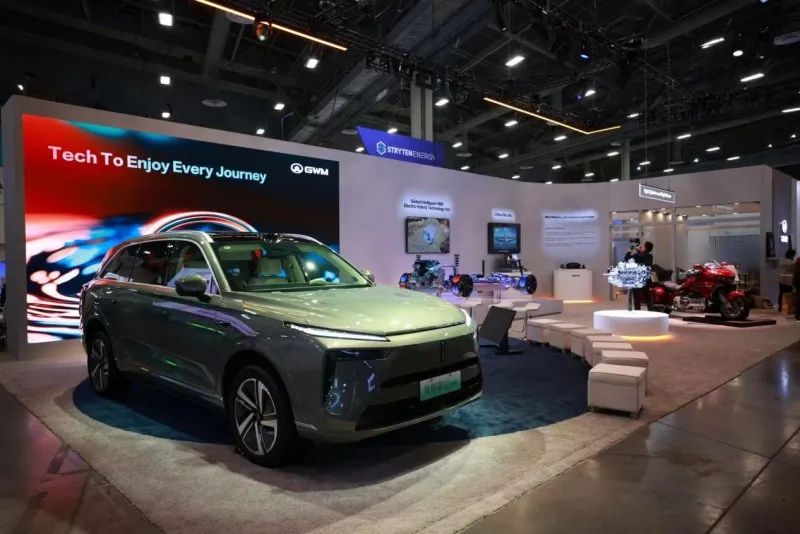
Great Wall Motors, making its CES debut, only showcased two models: WEY Blue Mountain and GWM Spirit S2000. Notably, GWM Spirit S200 is the first luxury touring motorcycle equipped with the Qualcomm Snapdragon 8155 chip, capable of realizing various smart cockpit and intelligent driving functions already available in cars.
Besides motorcycles, Great Wall Motors mainly displayed its third-generation Coffee Pilot Ultra intelligent driving system at CES, an autonomous driving system developed based on NVIDIA Orin-X chips.
As an automaker, Great Wall Motors also presented its core Hi4 intelligent four-wheel-drive electric hybrid technology for the Blue Mountain powertrain, demonstrating its independent research and development capabilities in new energy technologies to the overseas market.
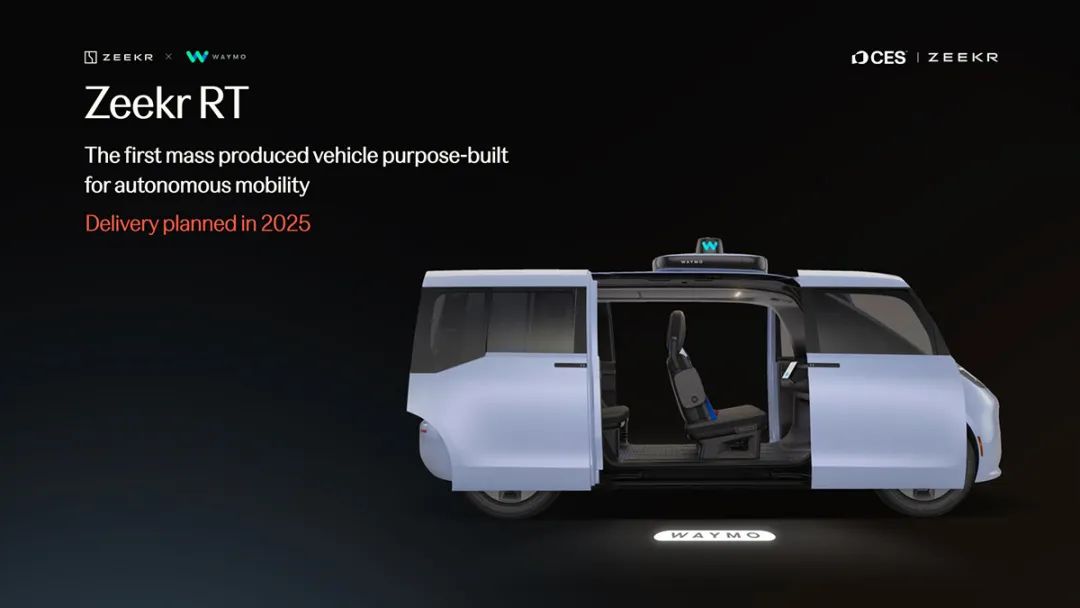
As a first-time exhibitor, Zeekr brought three mass-produced models to CES: the performance-oriented Zeekr 001 FR, the luxury-oriented Zeekr 009 Guanghui, and the design-oriented Zeekr MIX, and announced some of its latest core technologies.
Moreover, Zeekr has grander ambitions at CES. It announced that the Zeekr RT, jointly developed with Google's autonomous driving company Waymo, will enter mass production and delivery in 2025, making Zeekr the first domestic new force brand to be sold in the US market.
The Zeekr RT will serve as an autonomous driving test vehicle for Waymo. By participating in the exhibition, Zeekr aims to cultivate an impression among overseas consumers of its leading technology in autonomous driving and pure electric vehicles.
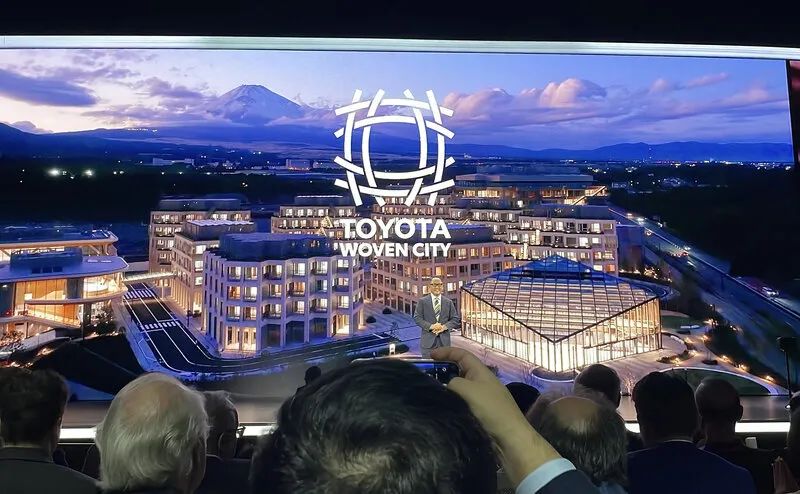
Among new force automakers listed in the US automotive market, Faraday Future, founded by Jia Yueting, cannot be overlooked. Not only has it delivered its 14th new car, but it also brought a prototype of its sub-brand FX to CES. However, Jia Yueting, known for his marketing prowess, restricted media from taking photos of the prototype, an operation reminiscent of the Zenith S800's marketing at the Guangzhou Auto Show.
Perhaps even more outrageous than Jia Yueting is Toyota, which returned to the exhibition after a five-year hiatus. Instead of focusing on cars, Toyota chose to venture into real estate development. At Toyota's press conference, it was announced that the Woven City project, planned five years ago, is now ready to welcome its first residents.
The Woven City project is being constructed on the site of Toyota's former factory in Susono City, Shizuoka Prefecture, Japan, at the foot of Mount Fuji, covering an area of about 70 hectares. The project is divided into three parts: transportation for exploring future mobility, energy for exploring future environmental protection, and IoT for exploring future cities.
Even Toyota President Akio Toyoda stated, "Future mobility should not be limited to Earth, nor should it be limited to one automotive company." This suggests that Toyota might also expand into the aerospace business like Elon Musk.
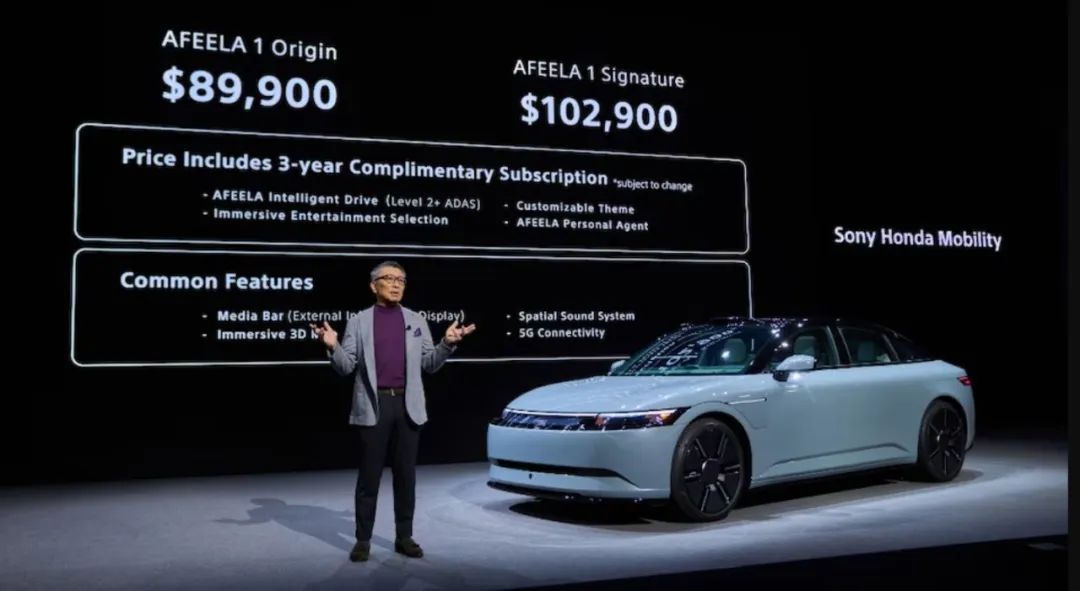
In contrast, perhaps the AFEELA 1, jointly developed by Honda and Sony, is the most pragmatic. After two years of concept models, this pure electric vehicle, considered the future of Japanese carmaking, has finally opened for pre-orders at a pre-sale price of $102,000, more expensive than the Tesla Model S Plaid.
The AFEELA 1 is equipped with numerous technologies enabled by Sony, including the advanced driver assistance system AFEELA Intelligent Drive, which integrates multi-sensing and AI artificial intelligence technology and uses the Unreal Engine for real-time rendering on the in-car screen.
However, Sony Honda still suffers from severe delays. The first model is expected to start delivery in 2026, while the regular model will not be delivered until 2027. It can only be said that when Sony empowers, it does so comprehensively, even transferring the gene of delays to automotive research and development.
Tech Companies Prefer Automotive Business
Unlike automakers diversifying into unrelated businesses, tech companies and component suppliers have increasingly prioritized the development of the automotive business at CES in recent years, introducing new software and hardware products each time.
At the highly anticipated NVIDIA press conference, the once-dominant gaming graphics cards were relegated to a 15-minute segment, as CEO Jensen Huang devoted more time to autonomous driving chips and AI chips.
The Thor chip, announced three or four years ago, will finally enter mass production in 2025, replacing the currently mainstream Orin chip among automakers. It seems that the only one that can beat NVIDIA is NVIDIA itself. The top-of-the-line version with a computing power of 2000 TFLOPS will undoubtedly become a crucial hardware component for the value of new energy vehicles.
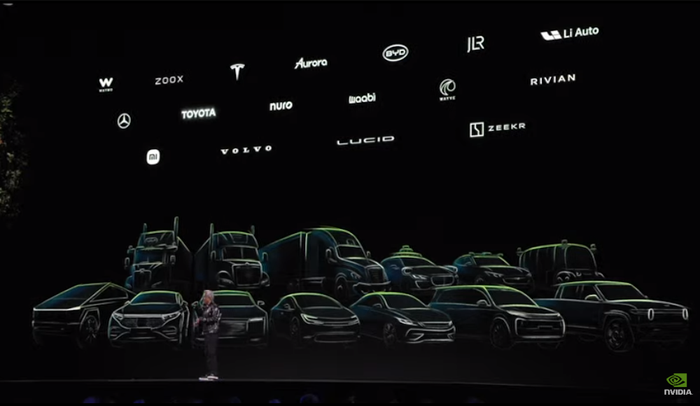
Moreover, as end-to-end large models begin to be applied to autonomous driving, AI deep learning has become a core technology that automakers must master. With its computing power chips, NVIDIA has naturally become a favored partner of automakers. The list of automaker partners showcased by Huang included most star automakers.
According to Huang, NVIDIA's automotive business is expected to achieve a revenue scale of $5 billion in 2025, gradually replacing the nearly stagnant gaming graphics card business.
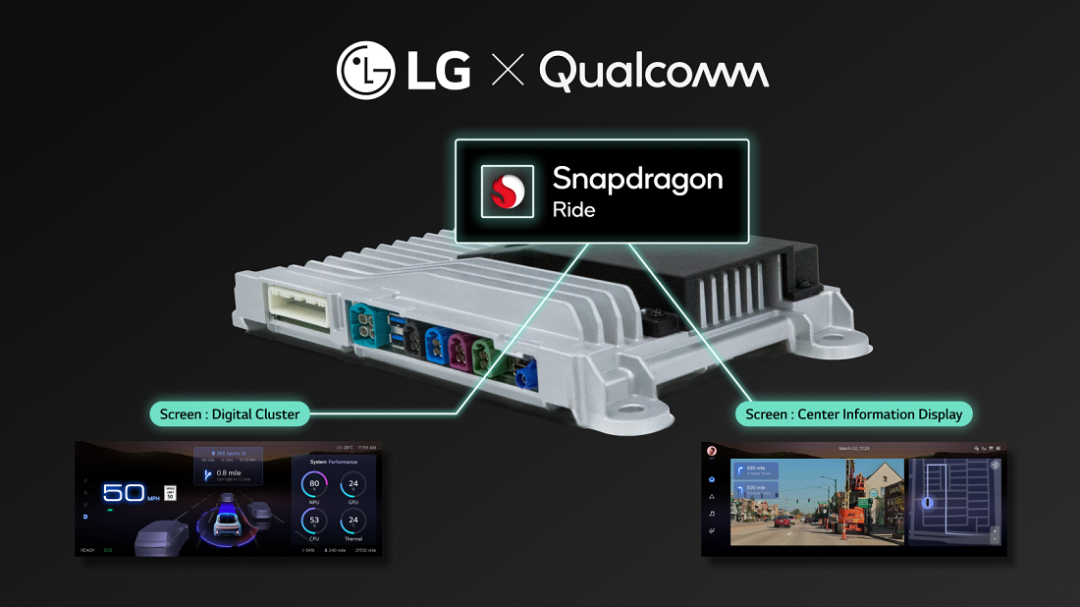
Besides NVIDIA, another tech company that automakers cannot avoid, Qualcomm, also focused its press conference on the automotive business, announcing nearly ten collaborations related to the automotive industry in one day, demonstrating Qualcomm's massive ambitions in the automotive sector.
These collaborations not only cover Qualcomm's strengths in smart cockpit-related businesses but also showcase its new progress in the Snapdragon Digital Chassis. Hyundai Mobis will collaborate with Qualcomm to develop Snapdragon intelligent driving chips and software.
Mahindra has chosen to develop electric SUVs using the Snapdragon Digital Chassis solution and has already started selling them in the Indian market, making it one of the first models to implement this solution.
Having started from smart cockpits, Qualcomm is no longer satisfied with the small market and has begun to promote its intelligent driving and digital chassis businesses to automakers using its brand influence. Against the backdrop of a weakening consumer electronics market, Qualcomm needs emerging businesses to lead the company's transformation.
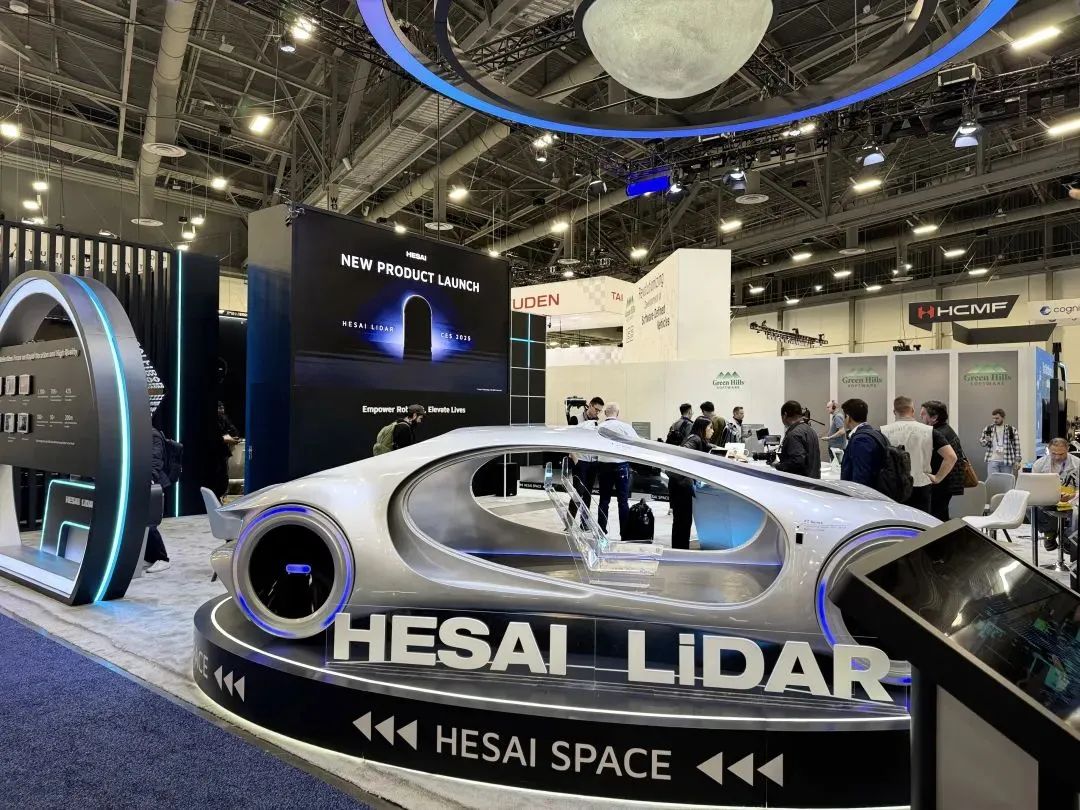
In terms of in-vehicle hardware, the once much-talked-about lidar has now become a battle between two Chinese giants, making it difficult for other companies to make breakthroughs.
At this year's CES, Hesai Technology, the lidar leader, showcased its latest 1440-line lidar AT1440 and solid-state lidar FTX. The 1440-line lidar has almost 10 times the number of lines of current mainstream lidars, pushing Hesai's technological iteration capability to an exponential level.
RoboSense's new product focuses on other performance aspects. The lidar EM4 has over 1000 lines, reaching 1080 lines, capable of more accurately detecting white vehicles within a range of 600 meters, traffic cones within 300 meters, and tires within 180 meters, ushering lidar into the high-definition era.
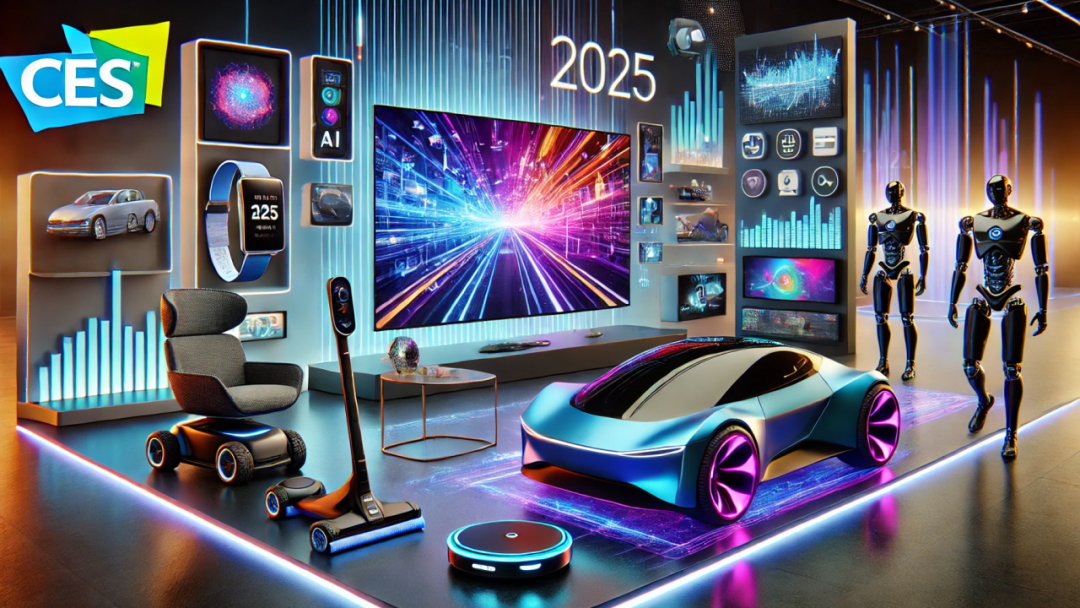
As the consumer electronics market tends towards saturation, the development of traditional electronics industries has hit a bottleneck. The advent of intelligent connected vehicles has brought new development opportunities. Traditional tech companies all aim to gain a head start in the automotive business and continuously expand their business scope.
Influenced by intelligent connected vehicles, automakers have transformed from mere solution procurers to integrated enterprises encompassing research, development, and production. Traditional automakers hope to retain core technologies in the era of smart cars, which is why they may seem to be diversifying into unrelated businesses, putting more energy into software development-related businesses, and becoming more like tech companies.
Moreover, it is worth noting that in the era of smart cars, Chinese companies are gradually moving to the forefront of automotive technology, leading the development of smart car technology. At this year's CES exhibition, 1,100 domestic companies participated, 712 of which were related to automotive and mobility technologies, proving that domestic smart car technology is already at the forefront of the world.
Note: Some images are sourced from the internet. If there is any infringement, please contact us for removal.

